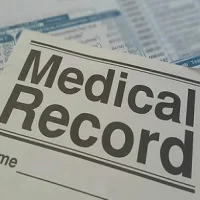Use of electronic health record (EHR) is strongly associated with dissatisfaction and burnout among physicians. This is not surprising as they spend 34-55 percent of their work day creating notes and reviewing medical records in the EHR, which is time diverted from direct patient interactions.
EHR developers should look at informatics solutions to ease documentation, according to a commentary in the journal Mayo Clinic Proceedings, noting that artificial intelligence (AI) could help with automating documentation.
"Because writing and reviewing notes takes up 78 percent of all physician interactions with EHRs, we believe that these solutions should be designed around the process of note creation," write Steven Y. Lin, MD (Stanford University School of Medicine) and co-authors in the commentary.
Dr. Lin et al. say speech recognition and natural language processing technology can support the creation of notes in real time by listening in on patient-physician conversations. AI can collect, sort, and assemble clinical information from multiple sources (e.g., previous notes, laboratory results, radiology reports, pharmacy records) faster than humans.
"During the note creation process, AI-enhanced decision support software can analyse a note's content and provide real-time evidence-based recommendations to physicians (e.g., differential diagnosis, suggested evaluation, treatment guidelines) using dynamic clinical data mining," the commentary says. "Risk scores such as atherosclerotic cardiovascular disease to guide statin treatment, or CHA2DS2-VASc to guide anticoagulation decisions, can be calculated as part of note creation to augment clinical decision making."
Furthermore, AI can automate and optimise the coding and billing process based on risk-adjustment factors and draft level-of-service recommendations for office or hospital visits.
To build this “autoscribe” AI assistant in the EHR, developers need to consider key design requirements including:
- Any autoscribe will need to take a nonlinear, fragmented, multilayered patient history and generate an accurate, cohesive, logical narrative by placing the right data in the right place in the note.
- It must be able to handle multiple voice inputs (e.g., the patient, family members, physician, other members of the care team) that may overlap, be able to distinguish who is who, and handle varying accents and dialects.
- It must be able to automatically assemble clinical information from other sources — including previous notes and pertinent laboratory and radiology results from within a health system and externally — and summarise without causing data overload and rendering notes unreadable.
"Most of the technologies needed to make autoscribe a reality already exist or are being developed. Now is the time for physicians, EHR developers, and AI technologists to engage with each other in the shared goal of transforming EHRs from passive data entry tools into intelligent digital assistants of the future," according to the commentary.
Although the promise of an autoscribe AI is appealing, the process for its development and testing is less clear.
"Creating even a prototype would require the collection of hundreds of thousands of hours of recorded patient-physician conversations for machine learning. Questions about how to collect, de-identify, store, and protect such data remain unanswered and are of particular concern in a time of high-profile hacks and public data breaches," the commentary says.
In addition, questions around the financial costs of implementing such technology, the risk that AI might “un-train” physicians from important skills, and the medicolegal ramifications of errors made by AI will need to be addressed. Similar to any new AI invention, autoscribe should be vigorously tested to reveal both its capabilities and limitations.
"Ultimately, no AI is perfect, and what AI needs is human intelligence to command, nurture, and amplify it as a partner in patient care," the commentary says.
Source: Mayo Clinic Proceedings
Image Credit: Unsplash.com
References:
Lin SY, Shanafelt TD, Asch SM (2018) Reimagining Clinical Documentation With Artificial Intelligence. Mayo Clinic Proceedings May 2018 93:5 563–565
DOI: https://doi.org/10.1016/j.mayocp.2018.02.016
Latest Articles
EHR, electronic health record, Artificial Intelligence, AI
Use of electronic health record (EHR) is strongly associated with dissatisfaction and burnout among physicians. This is not surprising as they spend 34-55 percent of their work day creating notes and reviewing medical records in the EHR, which is time div










